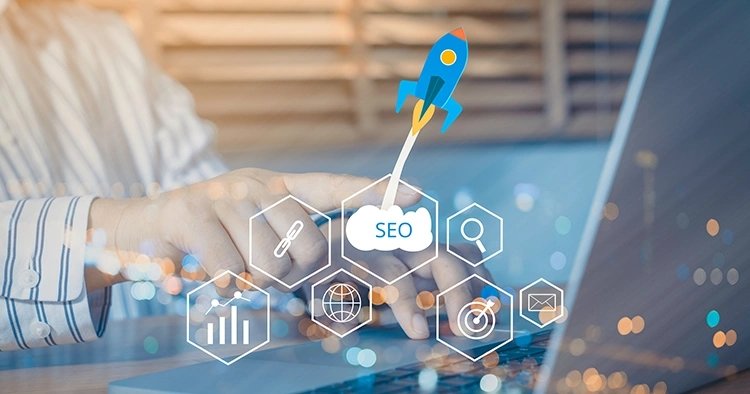Website speed plays a crucial role in both search engine rankings and user satisfaction. A slow-loading site can drive visitors away, hurt your SEO performance, and ultimately affect your business goals. Here’s how website speed influences SEO and user experience, and why optimizing it should be a priority.
1. Faster Websites Rank Higher in Search Results
Search engines prioritize fast-loading websites for better rankings.
- Google’s Core Web Vitals: Metrics like Largest Contentful Paint (LCP) and First Input Delay (FID) assess loading performance and interactivity.
- Lower Bounce Rates: Faster websites keep visitors engaged, reducing bounce rates and signaling search engines that your content is relevant.
- Mobile-First Indexing: Search engines favor mobile-friendly, fast-loading sites in rankings.
2. Slow Websites Drive Visitors Away
Speed directly impacts how long users stay on your site.
- User Patience: Visitors expect pages to load in under three seconds; delays lead to frustration.
- Abandoned Sessions: Longer load times increase the likelihood of users leaving before interacting with your site.
- Impact on Conversions: Even a one-second delay can result in significant revenue loss due to reduced user engagement.
3. Improves User Experience
Speed is critical to delivering a positive user experience.
- Quick Navigation: Fast-loading sites allow users to access information effortlessly.
- Mobile-Friendly Performance: Mobile users demand speed, especially when on slower data connections.
- Improved Accessibility: Websites optimized for speed are easier to use, even on older devices or slower networks.
4. Website Speed Affects Core Web Vitals
Core Web Vitals are essential metrics used by Google to measure page performance.
- Loading Time (LCP): How quickly the main content appears on the screen.
- Interactivity (FID): How quickly users can interact with your website.
- Visual Stability (CLS): Ensures page elements don’t shift unexpectedly during loading.
5. Impacts on Conversion Rates
Fast websites lead to better conversion rates.
- Higher Engagement: Quick-loading pages retain users longer, increasing the likelihood of action.
- E-commerce Success: Customers are more likely to complete purchases on fast websites.
- Competitive Advantage: Speed sets your site apart from competitors with slower load times.
6. Common Causes of Slow Websites
Identifying and addressing common speed issues is essential.
- Unoptimized Images: Large, high-resolution images can slow down loading times.
- Excessive Plugins: Too many plugins can bloat your site and affect speed.
- Server Issues: Low-quality hosting services lead to slower response times.
- Unminified Code: Excessive or poorly written CSS, JavaScript, and HTML can reduce speed.
7. How to Improve Website Speed
Optimizing your website for speed involves several best practices.
- Compress Images: Use tools to reduce file sizes without compromising quality.
- Enable Browser Caching: Allow returning users to load pages faster by storing certain elements locally.
- Minify Code: Remove unnecessary characters from your HTML, CSS, and JavaScript files.
- Use a Content Delivery Network (CDN): Distribute your website’s content across global servers for faster access.
- Upgrade Hosting: Invest in reliable hosting services that offer faster server response times.
8. Track and Monitor Speed Metrics
Regularly assessing your site’s speed ensures consistent performance.
- Google PageSpeed Insights: Analyze your site’s performance and receive actionable recommendations.
- GTmetrix and Pingdom: Use these tools for detailed speed reports.
- Monitor Core Web Vitals: Keep track of Google’s metrics to ensure compliance with best practices.
Website speed is a critical factor for both SEO performance and user satisfaction. By improving load times, you can increase your search rankings, retain more visitors, and provide a better experience. Optimizing website speed is not just a technical improvement—it’s a strategic investment in your online success.
Need help optimizing your website speed? Contact us today to ensure your site performs at its best.


